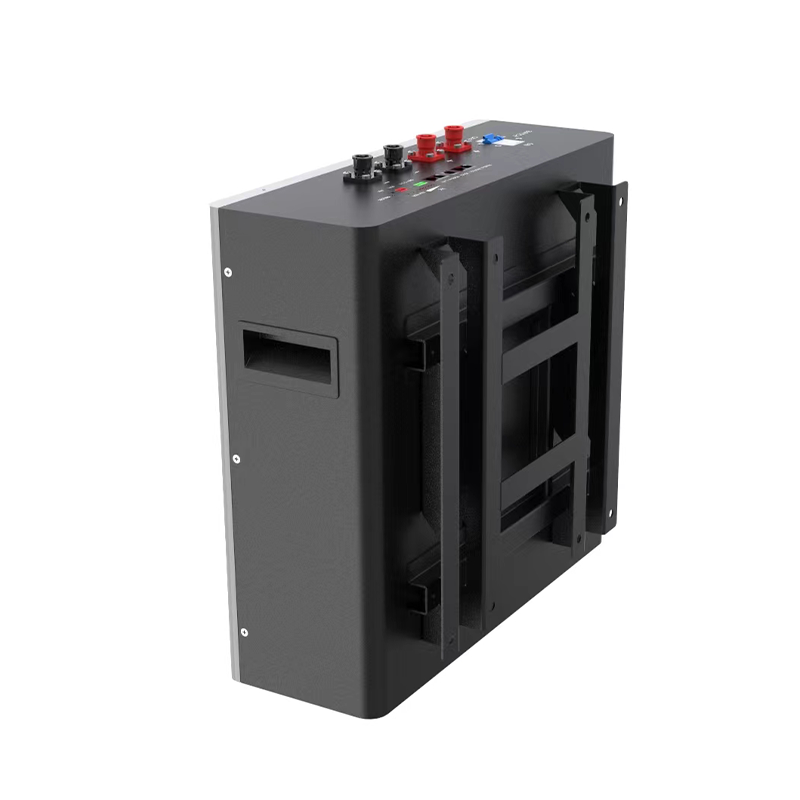Understanding RV Deep Cycle Batteries: Your Essential Guide
When it comes to powering recreational vehicles (RVs), understanding the role of RV deep cycle batteries is crucial. Unlike standard automotive batteries that are designed primarily for short bursts of power to start the engine, deep cycle batteries are engineered to provide a steady amount of energy over an extended period, making them ideal for RV use.
One of the primary characteristics of RV de
2025-09-28

When it comes to powering recreational vehicles (RVs), understanding the role of RV deep cycle batteries is crucial. Unlike standard automotive batteries that are designed primarily for short bursts of power to start the engine, deep cycle batteries are engineered to provide a steady amount of energy over an extended period, making them ideal for RV use.
One of the primary characteristics of RV deep cycle batteries is their ability to be discharged and recharged repeatedly without significant damage. This distinguishes them from regular batteries, which can be negatively impacted by deep discharges. Deep cycle batteries typically come in two main types: flooded lead-acid and sealed types (such as AGM or gel batteries). Each has its advantages; for example, flooded lead-acid batteries are generally more affordable, but they require regular maintenance, whereas sealed batteries offer ease of use and are often more resistant to temperature variations.
When selecting an RV deep cycle battery, capacity is a critical factor to consider. Battery capacity is measured in amp-hours (Ah) and indicates how much energy the battery can store. This measurement helps you determine how long your battery will last while powering your devices. For instance, if your RV requires 100 watts of energy per hour, a 100Ah deep cycle battery would theoretically provide power for about 1 hour, though actual usage can vary based on factors like power consumption and efficiency.
Another important aspect to keep in mind is the charging method. Deep cycle batteries can be charged using various methods, including solar panels and generators. Understanding the charging requirements is vital for maintaining battery health and ensuring longevity. Regularly checking the voltage and specific gravity of flooded batteries, or maintaining appropriate charging cycles for sealed types, will help extend their lifespan.
Additionally, the location and environment in which the RV is used can influence battery performance. Extreme temperatures can affect battery efficiency and longevity. Therefore, it’s advisable to store your RV and its batteries in a climate-controlled environment when not in use, especially during winter months.
In conclusion, RV deep cycle batteries play an essential role in ensuring a reliable power supply for your adventures. By understanding their features and how to maintain them properly, you can enjoy uninterrupted energy and enhance your overall RV experience. Whether you're powering your refrigerator, lights, or other devices, investing time in choosing the right battery and caring for it will pay off in the long run.
One of the primary characteristics of RV deep cycle batteries is their ability to be discharged and recharged repeatedly without significant damage. This distinguishes them from regular batteries, which can be negatively impacted by deep discharges. Deep cycle batteries typically come in two main types: flooded lead-acid and sealed types (such as AGM or gel batteries). Each has its advantages; for example, flooded lead-acid batteries are generally more affordable, but they require regular maintenance, whereas sealed batteries offer ease of use and are often more resistant to temperature variations.
When selecting an RV deep cycle battery, capacity is a critical factor to consider. Battery capacity is measured in amp-hours (Ah) and indicates how much energy the battery can store. This measurement helps you determine how long your battery will last while powering your devices. For instance, if your RV requires 100 watts of energy per hour, a 100Ah deep cycle battery would theoretically provide power for about 1 hour, though actual usage can vary based on factors like power consumption and efficiency.
Another important aspect to keep in mind is the charging method. Deep cycle batteries can be charged using various methods, including solar panels and generators. Understanding the charging requirements is vital for maintaining battery health and ensuring longevity. Regularly checking the voltage and specific gravity of flooded batteries, or maintaining appropriate charging cycles for sealed types, will help extend their lifespan.
Additionally, the location and environment in which the RV is used can influence battery performance. Extreme temperatures can affect battery efficiency and longevity. Therefore, it’s advisable to store your RV and its batteries in a climate-controlled environment when not in use, especially during winter months.
In conclusion, RV deep cycle batteries play an essential role in ensuring a reliable power supply for your adventures. By understanding their features and how to maintain them properly, you can enjoy uninterrupted energy and enhance your overall RV experience. Whether you're powering your refrigerator, lights, or other devices, investing time in choosing the right battery and caring for it will pay off in the long run.
Key words:
Previous:
Related News


